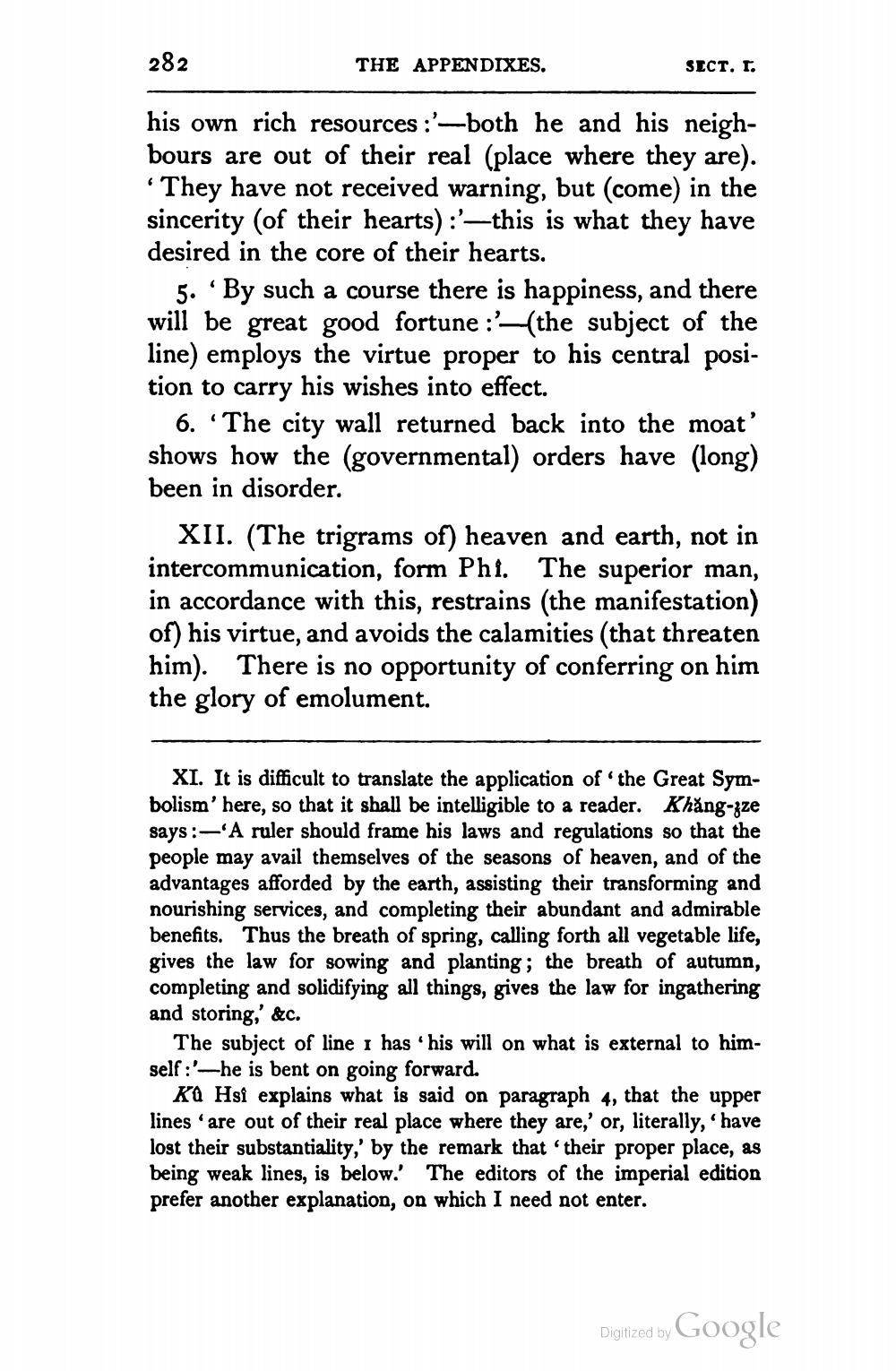________________
282
THE APPENDIXES.
SECT. I.
his own rich resources :'-both he and his neighbours are out of their real (place where they are). • They have not received warning, but (come) in the sincerity (of their hearts) :'—this is what they have desired in the core of their hearts.
5. ‘By such a course there is happiness, and there will be great good fortune :'-(the subject of the line) employs the virtue proper to his central position to carry his wishes into effect.
6. The city wall returned back into the moat' shows how the (governmental) orders have (long) been in disorder.
XII. (The trigrams of) heaven and earth, not in intercommunication, form Phi. The superior man, in accordance with this, restrains (the manifestation) of) his virtue, and avoids the calamities (that threaten him). There is no opportunity of conferring on him the glory of emolument.
XI. It is difficult to translate the application of the Great Symbolism' here, so that it shall be intelligible to a reader. Khăng-zze says:-'A ruler should frame his laws and regulations so that the people may avail themselves of the seasons of heaven, and of the advantages afforded by the earth, assisting their transforming and nourishing services, and completing their abundant and admirable benefits. Thus the breath of spring, calling forth all vegetable life, gives the law for sowing and planting ; the breath of autumn, completing and solidifying all things, gives the law for ingathering and storing,' &c.
The subject of line 1 has his will on what is external to himself :'-he is bent on going forward.
KU Hsi explains what is said on paragraph 4, that the upper lines are out of their real place where they are,' or, literally,'have lost their substantiality,' by the remark that their proper place, as being weak lines, is below. The editors of the imperial edition prefer another explanation, on which I need not enter.
Digitized by Google




